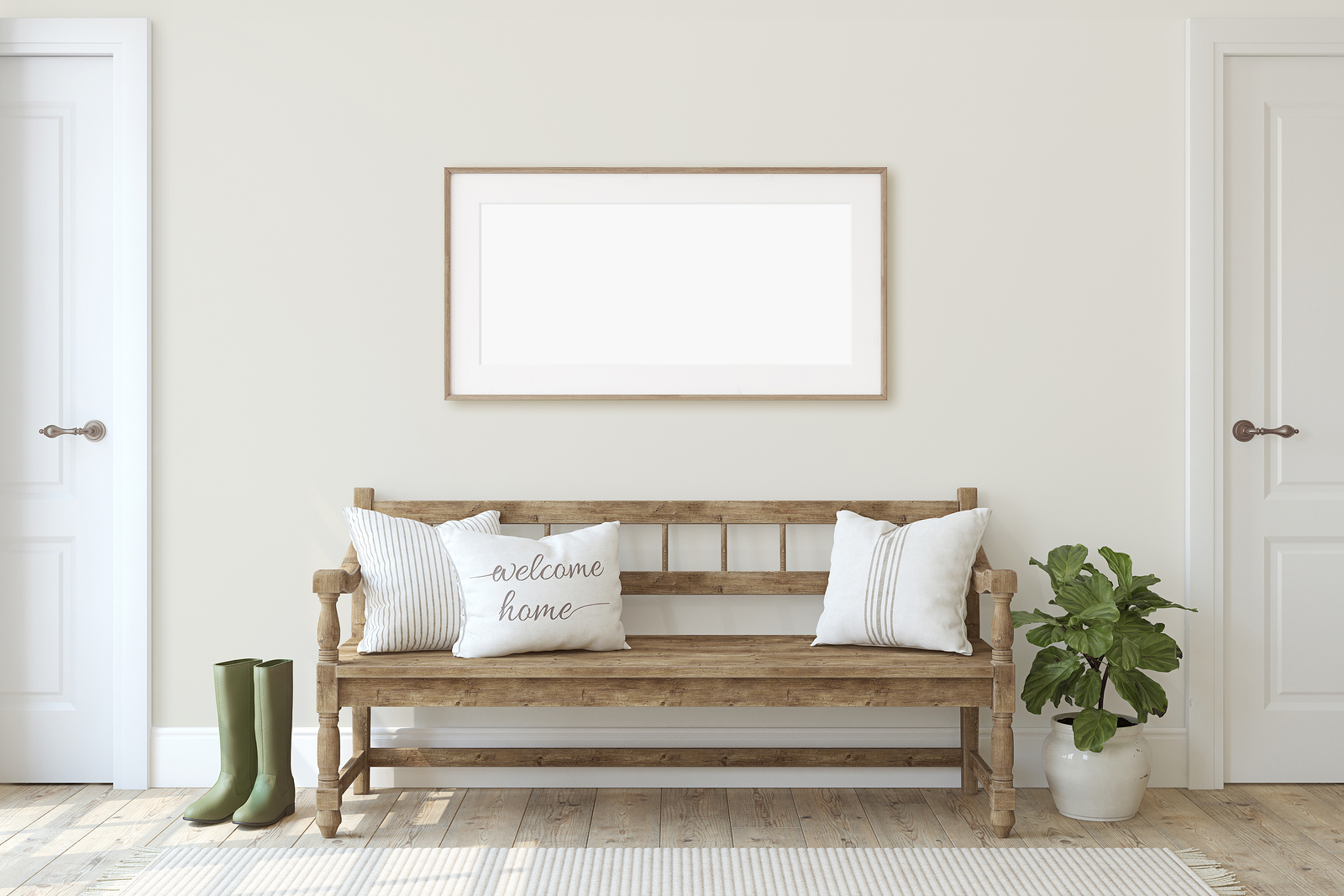Folks who live in areas of the country with wild winter weather use a vocabulary that sounds like a foreign language to those who live in more mild climes.
One of the words not in the Hawaiian’s or Floridian’s vocabulary is “mudroom.”
But, whether it’s an entryway retrofitted in the winter to hold wet, muddy shoes or an entire room devoted to winter over-clothes, boots, and recreational equipment, a mudroom is something many Americans can’t fathom living without.
After all, it helps keep the rest of the home clean.
That’s the beauty of the mudroom. Located at a home’s entry point, it’s a corral for grimy gear.
Whether you need to create a mudroom or want to deck out the one you already have, we’ve rounded up some brilliant tips for its floors and walls.
The best location for a mudroom
If you’re starting from scratch (creating a new mudroom), the first thing to know is that it needs to be a room off of an exterior door.
Depending on how much space you have, you’ll ideally want it out of sight from the rest of the house. Sure, that’s not always possible, but it’s ideal.
After that, the sky is the limit.
Here are some tips to consider if you’ll be creating a mudroom:
If the design and décor will be more utilitarian than decorative, site the mudroom near a side or rear entryway.
If you lack space inside the home, consider turning a corner of the garage or carport into a mudroom. One of the trends in new-home construction is to combine the mudroom and the utility room.
This way, soiled clothing goes right into the washer instead of being piled in a basket (or on the floor) awaiting a trip to the laundry room.
The designers at HGTV claim that the best location for a mudroom is the room accessed first by the door to the home that you use most.
Durability is key in choosing mudroom flooring
Everything in a mudroom should be durable and efficient to use. Start with durability and you’ll thank yourself later.
Skip carpeting and opt for a flooring product that is easy to clean yet still slip-resistant. This means no tile (unless it’s labeled as slip-resistant).
Good options include:
- Vinyl – There are some gorgeous luxury plank vinyl flooring options available today (see examples here). Some look and feel like wood and many are waterproof.
- Natural stone – Yes, some types of natural stone can be quite slippery when wet. According to a study published in the Journal of Materials in Civil Engineering, it’s the composition of the stone product and not the rough finish that determines how slick it will be.
Products with more quartz, such as mica schist, are less slippery, but granite, with a high quartz content, is quite “slippery in wet conditions” because other minerals included in the rock wear down easily. Shop carefully if you’re considering natural stone floors for your mudroom.
- Concrete – Wait, don’t turn your nose up at the thought of a concrete floor. Installers are doing wonders with finishes nowadays. Take a look at examples of “Why Concrete Floors Rock” at HGTV.com.
Buy a bunch of throw rugs and some boot scrubbers and your floors will be a snap to clean.
Move on to the walls
Paint or wallpaper? Again, you’ll want to keep the focus on durability when considering how to cover the mudroom walls.
Either one, if chosen wisely, will stand up to the gunk that gets flung around a mudroom.
Semi-gloss-painted walls are the easiest to clean, but choose a color that won’t show the grime (forego white).
The folks at HGTV recommend, aside from paint, wainscoting, and beadboard.
When you’re considering wallpaper, look at the vinyl selections first. They clean up easily and hide a lot of “sins.” Take a look at how some homeowners have used wallpaper in their mudrooms at Houzz.com.
Find additional mudroom makeover ideas at ElleDecor.com and Pinterest.com.


